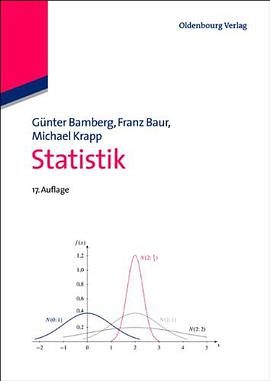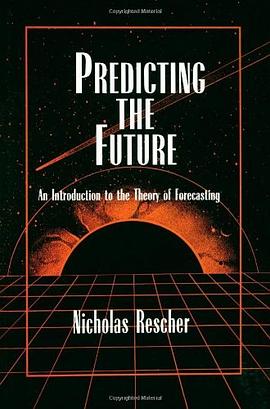德國
IT-Vertragsrecht 豆瓣
作者:
Thomas Hoeren
Schmidt, Otto
2012
- 3
Recht des Internet 豆瓣
作者:
Markus Köhler
/
Hans-Wolfgang Arndt
…
C.F. Müller
2011
- 4
Michael Polanyi and His Generation 豆瓣
作者:
Mary Jo Nye
University Of Chicago Press
2011
- 9
In "Michael Polanyi and His Generation", Mary Jo Nye investigates the role that Michael Polanyi and several of his contemporaries played in the emergence of the social turn in the philosophy of science. This turn involved seeing science as a socially based enterprise that does not rely on empiricism and reason alone but on social communities, behavioral norms, and personal commitments. Nye argues that the roots of the social turn are to be found in the scientific culture and political events of Europe in the 1930s, when scientific intellectuals struggled to defend the universal status of scientific knowledge and to justify public support for science in an era of economic catastrophe, Stalinism and Fascism, and increased demands for applications of science to industry and social welfare. At the center of this struggle was Polanyi, who Nye contends was one of the first advocates of this new conception of science. Nye reconstructs Polanyi's scientific and political milieus in Budapest, Berlin, and Manchester from the 1910s to the 1950s and explains how he and other natural scientists and social scientists of his generation - including J.D. Bernal, Ludwik Fleck, Karl Mannheim, and Robert K. Merton - and the next, such as Thomas Kuhn, forged a politically charged philosophy of science, one that newly emphasized the social construction of science.
Theoretische Informatik - kurz gefasst 豆瓣
作者:
Uwe Schöning
Spektrum Akademischer Verlag
2008
- 5
Theoretische Informatik 豆瓣
作者:
Klaus W. Wagner
Springer
2013
- 10
Diese kompakte Einf hrung in die Theoretische Informatik stellt die wichtigsten Modelle f r zentrale Probleme der Informatik vor. Dabei werden u.a. folgende Fragestellungen behandelt: Welche Probleme sind algorithmisch l sbar? (Theorie der Berechenbarkeit und Entscheidbarkeit)Wie schwierig ist es algorithmische Probleme zu l sen? (Theorie der Berechnungskomplexit t, NP-Theorie)Wie sind informationsverarbeitende Systeme prinzipiell aufgebaut? (Theorie der endlichen Automaten)Welche Strukturen besitzen Programmiersprachen? (Theorie der formalen Sprachen)In der Erarbeitung dieser Themen wird der Abstraktionsproze von den realen Gegenst nden der Informatik zu den in der Theoretischen Infromatik etabliertern Modellen, wie z.B. Random-Access-Maschinen, Turingmaschinen und endliche Automaten, nachvollzogen und umgekehrt verdeutlicht, was diese Modelle aufgrund der ber sie gewonnenen Erkenntnisse f r die Praxis leisten k nnen.
Theoretische Informatik. Eine Einführung in Berechenbarkeit, Komplexität und formale Sprachen mit 101 Beispielen 豆瓣
作者:
Alexander Asteroth
/
Christel Baier
Pearson Studium
2002
- 9
Analysis I 豆瓣
作者:
Herbert Amann
/
Joachim Escher
Birkhäuser Basel
2006
- 8
Dieses Lehrbuch ist der erste Band einer dreiteiligen Einführung in die Analysis. Der moderne und klare Aufbau richtet seinen Blick auf das Wesentliche. Anders als übliche Lehrbücher trennt es nicht zwischen der Theorie einer Variablen und derjenigen mehrerer Veränderlicher. Leser erkennen wesentliche Inhalte und Ideen der Analysis und erwerben sich so ein solides Fundament für das Studium tieferliegender Theorien. Das Werk richtet sich an Hörer und Dozenten der Anfängervorlesung der Analysis. Zahlreiche Beispiele, Übungsaufgaben und Ergänzungen empfehlen es zum Selbststudium und als Grundlage für vertiefende Seminare und das gesamte Studium.
Stochastik 豆瓣
作者:
David Meintrup
Springer
2005
Taschenbuch mathematischer Formeln 豆瓣
作者:
Hans-Jochen Bartsch
Carl Hanser Verlag GmbH & Co. KG
2007
- 7
Stochastik für Einsteiger 豆瓣
作者:
Norbert Henze
Vieweg+Teubner Verlag
2011
- 11
Predicting the Future 豆瓣
作者:
Nicholas Rescher
State University of New York Press
1997
The future obviously matters to us. It is, after all, where we'll be spending the rest of our lives. We need some degree of foresight if we are to make effective plans for managing our affairs. Much that we would like to know in advance cannot be predicted. But a vast amount of successful prediction is nonetheless possible, especially in the context of applied sciences such as medicine, meteorology, and engineering. This book examines our prospects for finding out about the future in advance. It addresses questions such as why prediction is possible in some areas and not others; what sorts of methods and resources make successful prediction possible; and what obstacles limit the predictive venture.Nicholas Rescher develops a general theory of prediction that encompasses its fundamental principles, methodology, and practice and gives an overview of its promises and problems. Predicting the future considers the anthropological and historical background of the predictive enterprise. It also examines the conceptual, epistemic, and ontological principles that set the stage for predictive efforts. In short, Rescher explores the basic features of the predictive situation and considers their broader implications in science, in philosophy, and in the management of our daily affairs.
Informationsmanagement in vernetzten Unternehmen. Wirtschaftlichkeit, Organisationsänderungen und der Erfolgsfaktor Zeit 豆瓣
作者:
Peter Buxmann
Deutscher Universitäts-Verlag
2001
- 3
Die Verbundenheit der Dinge 豆瓣
作者:
Sebastian Gießmann
Kulturverlag Kadmos
2014
- 10
Informationswirtschaft 豆瓣
作者:
Wolfgang G. Stock
Oldenbourg Wissenschaftsverlag
2000
- 1
Die Welt als Wille und Vorstellung I 豆瓣
作者:
A.Schopenhauer
Suhrkamp Verlag
1986
- 11
Marketingmanagement 豆瓣
作者:
Christian Homburg
Springer Gabler
2014
- 10
Modellierung mit UML 豆瓣
作者:
Bernhard Rumpe
Springer
2011
- 8
Semantic Web 豆瓣
作者:
Pascal Hitzler
/
Markus Krötzsch
…
Springer
2007
- 10



















